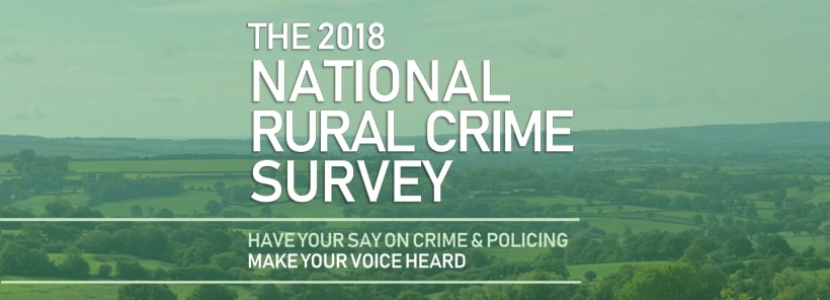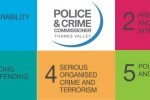
There are just a few days left for rural communities to have their say on crime and policing where they live.
The National Rural Crime Survey comes to an end on 10 June and is asking key questions to ensure the voice of the countryside is heard.
Do you think rural crime has gone up or down in Thames Valley? Do you feel safer? What’s your view of the police in your community?
We want to know the true picture of crime and anti-social behaviour in rural communities across Buckinghamshire, Berkshire and Oxfordshire – and the impact it has where you live or work.
Three years ago, the National Rural Crime Survey revealed the huge cost of crime to rural communities – both financial, at £800 million per year, and fear, with chronic under-reporting, anger and frustration at the police and government.
The National Rural Crime Network produced a series of recommendations and, in many areas, the police took steps to improve matters. So, now, we want to know what’s changed.
Questions cover a range of issues – from whether you report crimes that you or your business suffer, to the impact crime and anti-social behaviour has on you and your area, and whether you believe enough is done to catch those who carry out the offences.
It’s all about making sure the voice of rural communities is heard by those who can make a difference to where we live and work – from the Police to Government.
The survey is available at www.nationalruralcrimenetwork.net and is open for submissions until Sunday, 10 June.
Matthew Barber, Deputy Police and Crime Commissioner for Thames Valley, said:
“I hope that anyone living or working in a rural community will spare a few minutes to complete our survey. It will provide a clear picture of what has improved, what challenges remain and what more government, police forces and organisations can do to support the most isolated parts of the country.”
The survey last took place in 2015. Then, 13,000 responded to give their impressions of crime and anti-social behaviour and revealed the financial cost of rural crime was significant – around £800 million every year.
One of this year’s focuses as we rerun the research is whether rural crime continues to be underreported. Three years ago, one in four said they didn’t report the last crime they’d been a victim of because they didn’t see the point.
It’s being carried out by the National Rural Crime Network. The organisation brings together Police and Crime Commissioners, police forces and organisations that play a key role in rural communities – like the Country Land and Business Association, the National Farmers Union, Neighbourhood Watch, Crimestoppers, Historic England and the Countryside Alliance.
The Network’s Chair is Julia Mulligan:
“The aim of the National Rural Crime Network is to see greater recognition and understanding of the problems and impact of crime in rural communities so more can be done to help them be safe – and feel safe. In order to achieve that, we need to know the true picture of crime and anti-social behaviour that residents and businesses face.
“The 2015 findings uncovered some difficult truths for all those involved in protecting rural areas and now is the right time to see whether lessons have been learnt, whether people are more willing to report the crime they are victims of and if they do indeed feel safer.”
After the 2015 report, police forces across England and Wales made efforts to improve the way they dealt with crime that took place in rural areas. A mix of measures were adopted, including from 13 forces who now have dedicated rural crime teams, six forces who have a dedicated rural officer and two forces who introduced cross-force collaboration. The 2018 Survey will assess the impact these have had in an attempt to further showcase and roll-out best practice.
The results will also feed into the National Police Chiefs’ Council’s Rural Affairs National Strategy for 2018-2021 which is due to be launched later this year.
The report on the 2015 survey - ‘The true cost of crime in rural areas’ – is available here >>
- Website - www.nationalruralcrimenetwork.net
- Twitter - @RuralCrimeNtwk
- Facebook – @NationalRuralCrimeNetwork
About the National Rural Crime Network
The National Rural Crime Network is working to see greater recognition and understanding of the problems and impact of crime in rural areas so more can be done to keep people safe and make them feel safe too.
Established in July 2014, the Network is supported by 28 Police and Crime Commissioners and police forces across England and Wales. The chair is Julia Mulligan the Police and Crime Commissioner for North Yorkshire and the Vice-Chair is Tim Passmore, PCC for Suffolk.
In addition to PCCs and the police, the Network is supported by a wide range of other bodies with a deep interest in community safety and rural affairs. These include the Country Land and Business Association, the National Farmers Union, Neighbourhood Watch, Crimestoppers, Historic England and the Countryside Alliance.
Together, these members and supporters represent millions of people and as such the Network is uniquely placed to champion the needs of rural communities.

